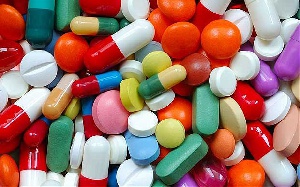Policy think tank Centre for Democratic Development (CDD) wants Ghana’s pharmaceutical supply chain to be realigned with an emphasis on improving the proportion of essential medicines that are manufactured locally, with the aim of driving down the average cost of generic medicines.
In its report titled “Post COVID-19: Expert Views on the Way Forward for Ghana”, the centre said the current situation where these essential medicines cost between 30-55 percent more in Ghana compared to the United Kingdom cannot continue.
“There will be a need to invest in [a] national strategic medicines stockpile. How we navigate these in the short to medium term will have a significant impact on our population profile, overall disease burden and life expectancy,” the report said.
According to the report, with job losses likely and out-of-pocket health expenditure expected to rise, the National Health Insurance Scheme (NHIS) will have to be revamped to encourage more Ghanaians to use the scheme.
It said the emphasis should be on driving the current out-of-pocket spending down from 40 percent to below 20 percent while increasing the percentage of the population using the NHIS from the current 36.3 percent to close to 60 percent.
If this doesn’t happen, health poverty is likely to affect a large percentage of the population, the report added.
The spread of COVID-19 to almost every corner of the world has resulted in global health and economic crises. It is now widely accepted that the global economy after the COVID-19 pandemic will shrink significantly.
Ghana’s GDP growth forecast for this year has been downgraded by the International Monetary Fund (IMF) to 1.5 percent. With a population growth rate of 2.2 percent, the result is that Ghana’s GDP per capita is predicted to decrease.
According to the CDD, this crisis has shown that when the entire world is simultaneously hit with a shock, developing economies are more likely to be the hardest hit as they are usually the least prepared and also lack the fiscal capacity to minimise the economic impact on the population—a quarter of which live in poverty.
“It is within this context that we propose some recommendations that policymakers should consider in a post-COVID-19 world,” it said.
“The post-pandemic recovery will be faster depending on the policies implemented during the pandemic. The more the number of businesses that fail, the harder is the post-pandemic recovery. One cannot think about post-pandemic policies without thinking about policies during the pandemic,” the report said.
Click to view details



Business News of Monday, 25 May 2020
Source: thebusiness24online.net

















